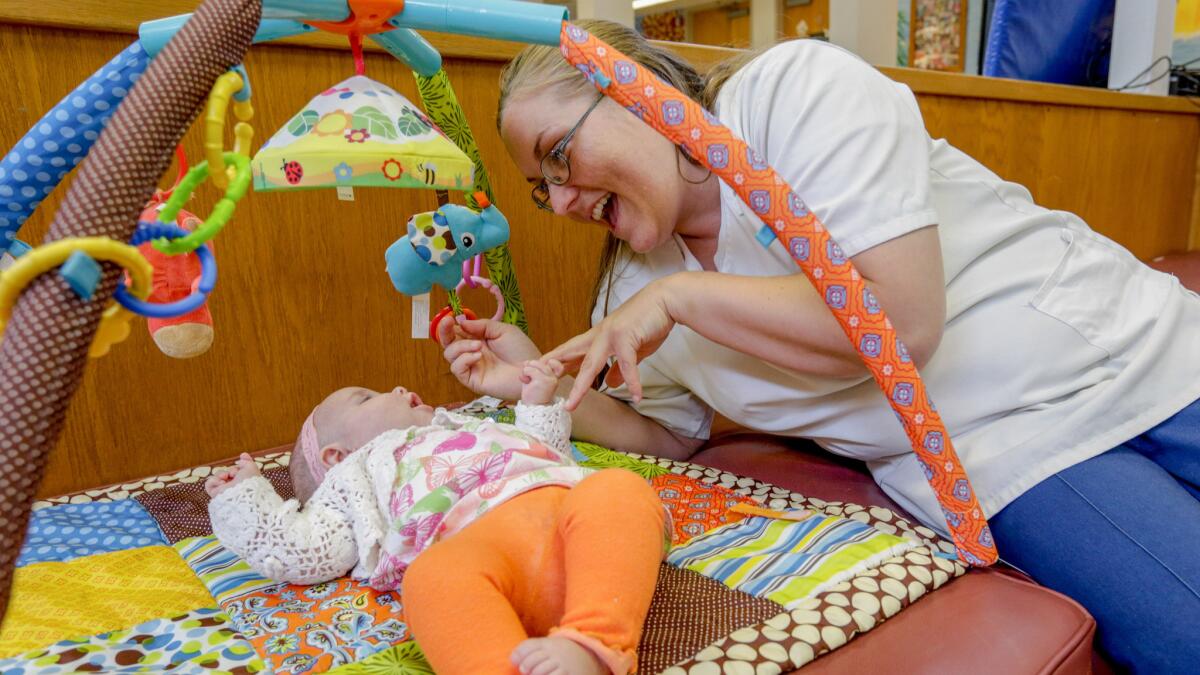Why infants pay more attention to people who speak their native language

As anyone who’s tried to befriend a baby knows, the very young are a tough crowd. In response to your solicitous babble, a baby might lock eyes with you. Just as likely, though, she’ll stare insistently into an empty distance, spit up, or dispatch you with a wail of protest.
New research suggests that babies are highly selective — discriminating even — in whom they will pay attention to. And even before their first birthdays, this research shows, babies distinguish between “people like me” and all others.
For those of us who like to think that prejudice is a taint that comes with age, this may be disappointing news. But a new study, published Monday in the journal PNAS, offers a fresh perspective on babies’ remarkable ability to distinguish between “in-group” members (“people like me”) and out-group members (“others”) at such a young age.
Babies are all about learning new stuff, the new research concludes. And they won’t waste a minute paying attention to someone they deem unlikely to deliver the goods.
The new research shows that, given the choice of listening to someone speaking in their native language and someone speaking another tongue, 11-month-old babies will consistently ignore the foreign speaker and pay attention to the person speaking the language that’s familiar to them. At the moment that those babies made such decisions, researchers detected a distinctive pattern in their brain activity — a pattern consistently seen in babies expecting to learn something new.
Yes, the babies were making “us” versus “them” judgments which, research has found, become ever more generalized and powerful as we age. But they appeared to be making those selective judgments, the research found, in a bid to maximize the information they take in, not to exclude the “other.”
How do researchers draw such inferences from babies who don’t even talk yet? Cognitive psychologists at the University of London gathered up a group of 45 babies from homes where only English was spoken. Their aims: first, to explore how babies decide whom to pay attention to, and second, to home in on what motivates that choice.
Knowing that infants are avid little learners, the researchers suspected that this imperative might play a role in capturing their attention. So first, they went looking for a distinctive pattern of brain activity in babies that signals: a new learning session is about to begin.
To do so, the researchers pasted electroencephalogram probes to babies’ scalps and listened for recurring brain-wave oscillations while the babies saw videos of two women and an unfamiliar object. The object was identified as a “blicket,” a made-up word babies were unlikely to have heard before.
In some videos — those that informed — one woman identified the object, and in some, she demonstrated how it was used. In other videos — those that did not inform — a second woman held the object with no interaction, or neutrally uttered the word, “oooh.”
In the moments that babies could reliably expect to learn something new, their brain wave activity bore a surprising resemblance to that of adults primed for important incoming information: Researchers consistently detected an increased pattern of “theta-oscillations” in those anticipatory moments.
That finding gave researchers something to look for when, in a second experiment, they set the babies before a video of a woman speaking English and a second woman speaking Spanish. Both were equally informative about the object they were identifying. But one did so in English, using an English-sounding nonsense word to identify the object. The second woman did so in Spanish, using a Spanish-sounding nonsense word.
After a video introduction to the two women, the brains of the English-language babies began to respond to the woman speaking English with a burst of theta-oscillations. When the Spanish speaker appeared, that distinctive pattern was notably absent.
Well before a baby begins speaking her native tongue, her inborn “drive for information” makes her a discriminating judge of who’s worth listening to, said the researchers. This “heightened valuation of same-group members may have its origins in infancy,” they add. But “the origin of this preference may be a consequence of infants’ drive to seek information from the optimal informant.”
Follow me on Twitter @LATMelissaHealy and “like” Los Angeles Times Science & Health on Facebook.
MORE IN SCIENCE
No, the Great Barrier Reef in Australia is NOT dead. But it is in trouble.
How to counter people with extreme views: Try agreeing with them
By adding an antibody to HIV treatment, researchers send virus into ‘sustained remission’ in monkeys




